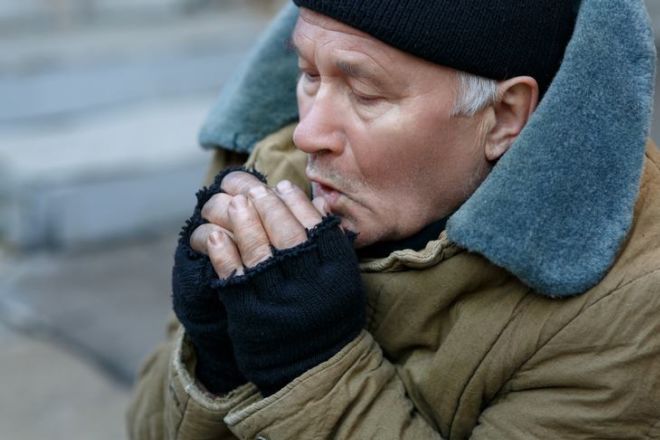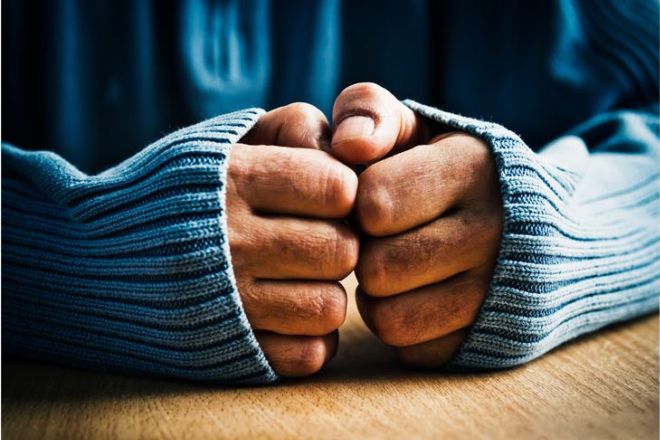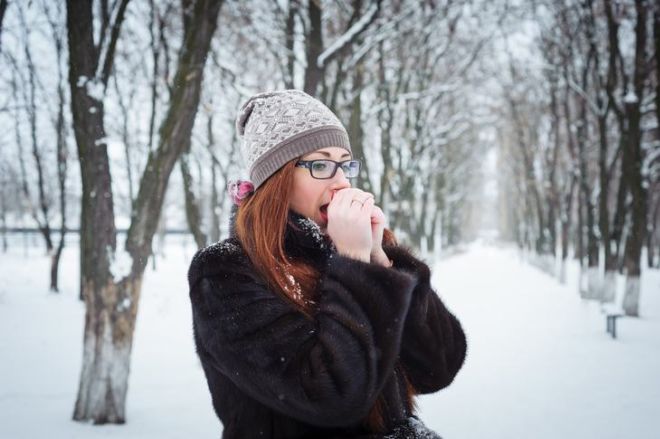The human body uses some pretty incredible mechanisms to try to stay warm, whenever temperatures drop below freezing. Here are 10 weird things that happen to your body when it’s freezing:

1. Your blood vessels constrict
Your body is built to maintain a stable temperature of 98.6 degrees Fahrenheit, or 37 degrees Celsius. But, what happens to your body when a temperature in your environment drops to freezing cold? Thermoreceptors in your skin sound the alarm, alerting an area of the brain called the hypothalamus. This area of the brain acts like a thermostat that’s job is to maintain steady body temperature. So, when it’s too cold, the hypothalamus tightens the blood vessels in your arms, hands, feet, and legs. Blood delivers heat to the skin, so if you decrease blood flow to the skin, you decrease heat loss from the skin.
2. You can become too cold if you dress too warmly
As ironic as this scenario might sound if you’re outside in cold weather shoveling snow, this amount of physical work will cause your muscles to contract, generating a lot of heat, causing your core temperature to go up. According to Robert Kenefick, Ph.D. and research physiologist at the U.S. Army Research Institute of Environmental Medicine “In this situation, your blood vessels dilate instead of constrict, and you start sweating. If that sweat then gets trapped in your clothing, then it can start sucking heat away from your body. That’s a recipe for hypothermia right there.”
3. You have to urinate
Here’s an irritating scenario: You use the bathroom, right before you head outdoors, but feel the need to go again soon after being outside. This happens because all that vasoconstriction (the constriction of blood vessels) forces fluid to concentrate in your core. This causes volume receptors to communicate with the hypothalamus, letting it know that it should get rid of some of that fluid, thus causing you to pee.

4. You have trouble catching your breath
When you inhale air, your nose moistens, humidifies and warms it before moving down to the lungs. But for people who suffer from asthma, or where the weather is bitter cold, the air doesn’t warm enough first, causing the lungs to spasm and constrict, making breathing difficult.
5. You scrunch down and huddle with others
When your blood vessels have been constricted, this causes your muscles to start to shiver, making you instinctually engage in social behaviors that help conserve heat. So when you scrunch down and make yourself smaller, you lose less heat to the environment. This happens because you decrease your own surface area.
6. You shiver
While you do shiver when it’s cold, the reason you do so is pretty interesting. Gordon Giesbrecht, Ph.D. and professor of thermophysiology at the University of Manitoba in Canada says “When vasoconstriction isn’t doing enough to warm you, the hypothalamus tells your muscles to start contracting. One of the byproducts of muscle contraction is heat.” If you get cold enough to enter into mild hypothermia, you can produce 400 to 600 watts of heat through shivering.
7. Your muscles tense
Giesbrecht explains that as muscle tissue cools, it doesn’t work as well. “At first, you lose the ability to do fine motor tasks, like using your cell phone correctly,” he says. “Then eventually [as your bigger muscle groups are affected], you might not, say, be able to hold on to an overturned boat in cold waters.”

8. You freeze much faster if wet
Do you notice how little kids shiver when they get out of a heated swimming pool in 80-degree weather? Kenefick says, “Water carries heat away from the body 25 times faster than air, so you can lose a great amount of heat very quickly when you’re wet. Shivering is one way your body is trying to raise your core temperature back up.”
9. Your skin turns white and hard
These are signs of frostbite, a condition that arises when you expose your skin to cold and freezing temperatures. Your cheeks, nose, and fingers tend to be especially vulnerable because they are getting less blood flow due to the vasoconstriction effect. Because of the shape of your fingers, it gives them more surface area relative to their size, making them more vulnerable to heat loss. Frostbite means the skin tissue has become damaged, and if severe enough, it can turn black and actually fall off. You begin to feel pain as your skin gets colder and colder, but soon, it will feel numb. And when this happens, the thermoreceptors in your skin have stopped working.
10. You make things worse if you drink alcohol
If you think that a flask of whiskey will keep you toasty, you are dead wrong. The body’s first major reaction to cold is to constrict the blood vessels. However, “alcohol does the opposite—it causes peripheral vasodilation,” explains Kenefick. “Those blood vessels widen and dump all this heat to the environment.” So, what happens here is that your skin will feel warm, but that provides a false sense of security, because, in reality, your core temperature drops, leading to extreme hypothermia.
ColdHuman BodySymptomsWinters




